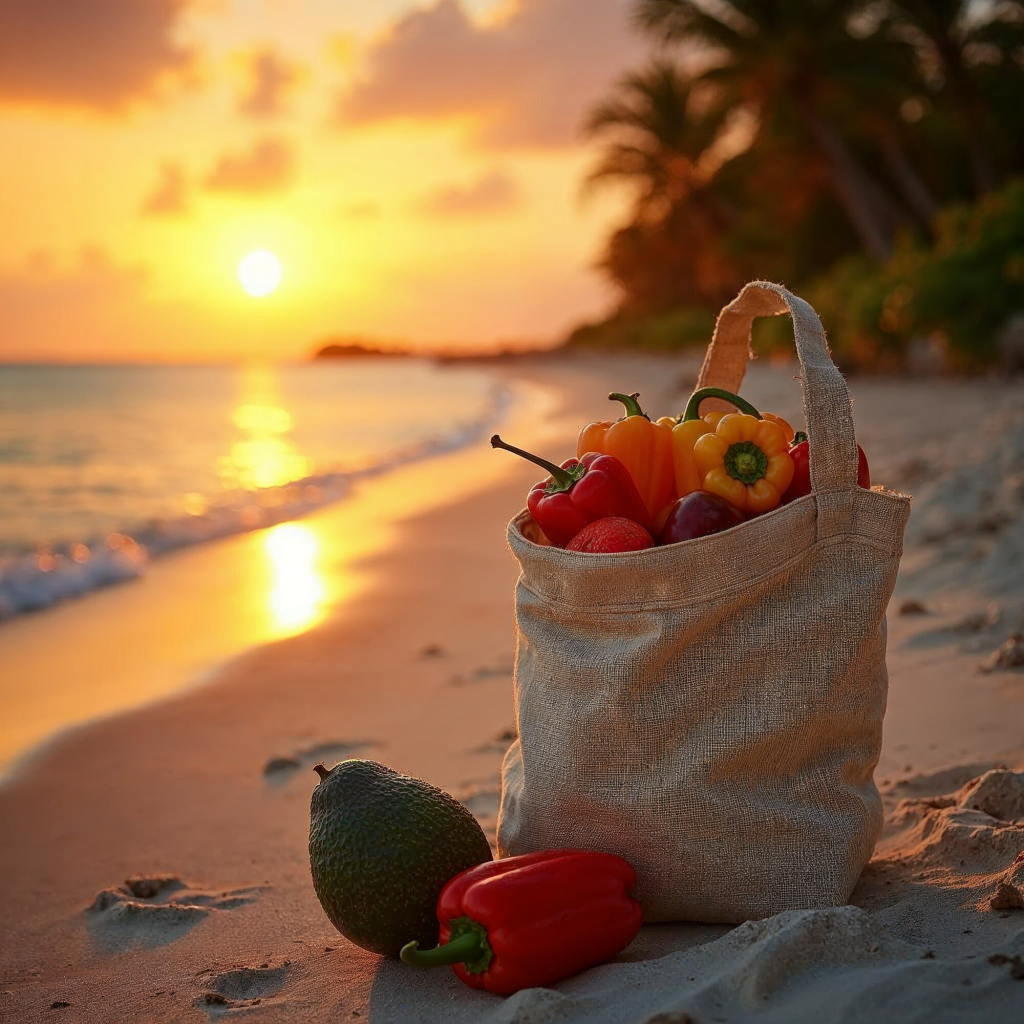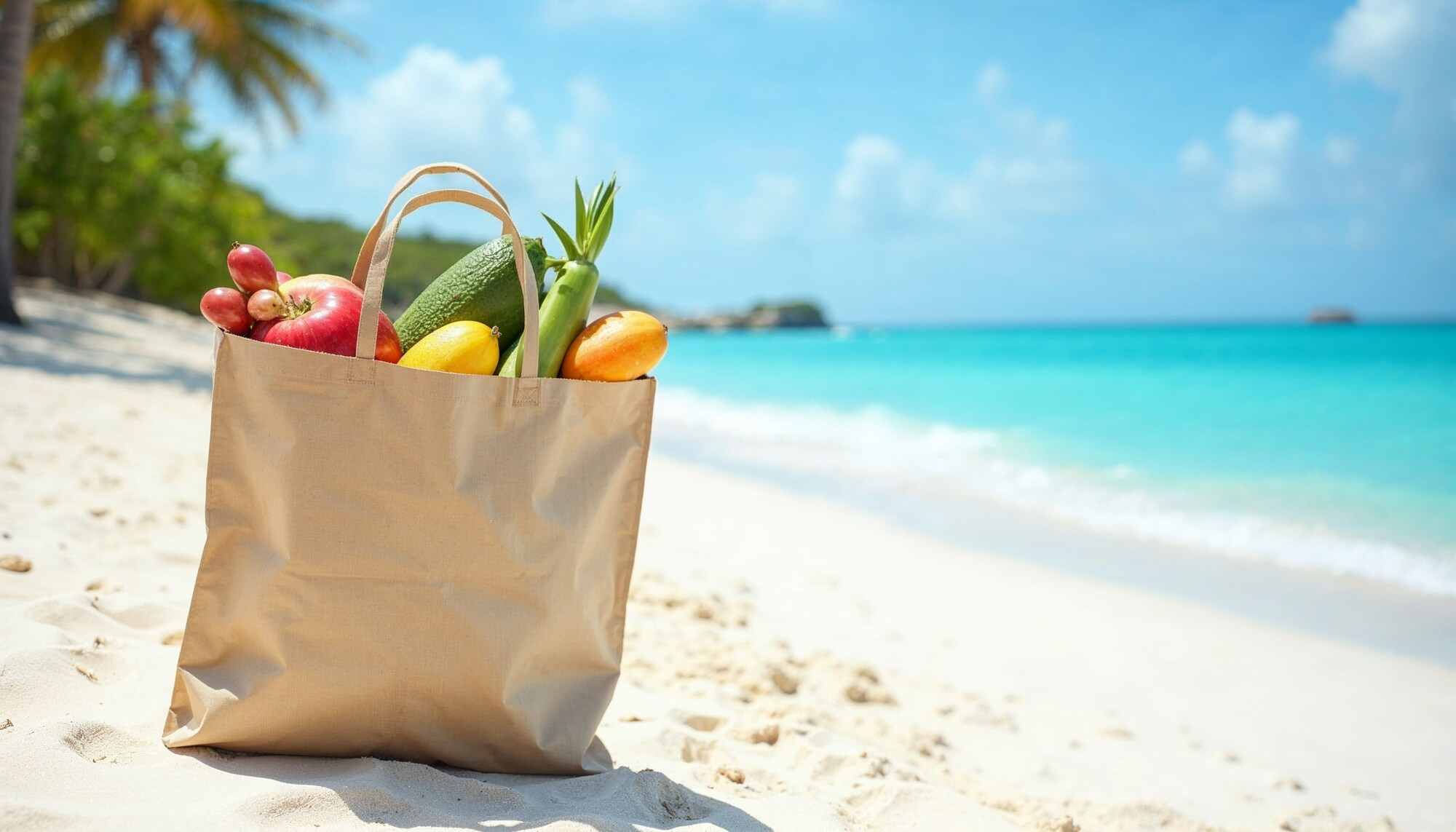
Aruba’s Plastic Bag Ban: Leading the Caribbean Toward a Plastic-Free Future
Since January 1, 2017, Aruba has made environmental history by becoming one of the first Caribbean islands to officially ban single-use plastic bags. This groundbreaking move has helped reshape daily life on the island, influencing locals, tourists, and businesses to adopt more sustainable habits and reduce their plastic footprint.
The Origins of the Ban
Aruba’s journey toward a plastic-free environment began in 2013 with the grassroots campaign “Plastic Bag Ban Aruba – Mi Tas ta Reusable,” launched by environmental advocate Juliet Carvalhal. After years of community engagement and education, the movement culminated in a unanimous decision by the Aruban Parliament on June 30, 2016, to outlaw plastic carry-out bags.
Retailers and vendors were given until January 1, 2017, to adapt to the new law. From that date forward, all supermarkets, shops, and retail businesses were no longer allowed to distribute or sell plastic bags.
Enforcing the New Rules
To ensure compliance, the government empowered inspectors to issue fines of up to 10,000 Aruban Guilders (about $5,715 USD) to any retailer violating the ban. This helped underscore the seriousness of the initiative and encouraged businesses to make quick adjustments.
Rather than plastic, consumers now bring reusable bags or use cardboard boxes to carry their groceries. Retailers responded by selling branded reusable bags and encouraging eco-conscious shopping habits.
Shifting Behavior and Awareness
The success of Aruba’s plastic bag ban is about more than just removing one product from stores – it’s about changing a mindset. The ban has sparked a behavioral shift among residents and visitors alike, emphasizing the importance of personal and corporate responsibility.
According to Juliet Carvalhal, Special Coordinator for Aruba’s Green Agenda, “Managing waste on islands, especially those heavily dependent on tourism, has been an ongoing challenge. But then again, being an island in itself also presents the community with added motivation to apply concepts of ‘Refuse, Reduce, Reuse, and Respect,’ seeing there is limited or practically non-existent access to recycling facilities.”

How Much Difference Can One Ban Make?
It’s a fair question: What real impact can banning plastic bags have on the environment?
A lot, it turns out. The Plastic Pollution Coalition estimates that one person can keep between 500 and 700 plastic bags out of landfills and oceans every year simply by using reusable alternatives. Given that plastic is a substance the Earth cannot digest—and that 8 million tons of it enter the oceans annually—these small actions add up quickly.
Beyond Bags: Expanding the Plastic-Free Vision
In 2019, Aruba expanded its commitment to sustainability by banning all single-use plastics, including straws, plastic utensils, cups, plates, and Styrofoam containers. The sale of sunscreens containing oxybenzone – known to damage coral reefs – was also prohibited. These efforts further strengthen Aruba’s goal of becoming a model for eco-friendly tourism and environmental leadership.
Small Actions, Big Results
Environmental change often begins with everyday choices. Take for example Lauren Singer, founder of the Trash is for Tossers blog, who famously lived in New York City for four years while generating just one mason jar of waste. By composting, separating trash, and carrying reusable containers and bags, she showed that even in a major urban environment, it’s possible to live waste-free.
Her message is simple: Every little bit helps, especially when everyone does their part.
A Model for Sustainable Tourism
Aruba’s leadership in banning plastic bags—and extending that initiative to other single-use plastics – offers a valuable example to other countries, especially those that rely on tourism. It proves that environmental preservation and economic growth don’t have to be at odds. With thoughtful legislation, community engagement, and a shared commitment to change, sustainability can thrive.
As the Plastic Pollution Coalition puts it: “Let’s make plastic bags go extinct.”
…
Planning to go to Aruba soon? Book your car with Thrifty Aruba and your tours & activities here.


…
About the publisher CoolestCarib
CoolestCarib.com is a vibrant online platform dedicated to Caribbean travel and lifestyle. The site offers engaging articles, travel guides, and cultural insights about destinations across the Caribbean. Whether you’re seeking travel tips, information on local events, food and drink highlights, or must-see attractions, CoolestCarib is a go-to resource for both travelers and Caribbean enthusiasts.
In addition to travel content, CoolestCarib serves as a valuable marketing hub for local Caribbean businesses. It allows service providers – such as restaurants, car rental agencies, water sports operators, and accommodation hosts – to list their offerings. These listings are promoted across a network of over 60 well-established Caribbean websites, enhancing visibility and reaching a wider audience of potential visitors.
Whether you’re planning your next island getaway or promoting your Caribbean-based business, CoolestCarib.com connects you to the heart of the region.

Please Note:
- For more articles on Caribbean islands go to CoolestCarib.com
- Follow CoolestCarib on Facebook, Instagram and Twitter
- For website creation, hosting & services visit gandor.tv



